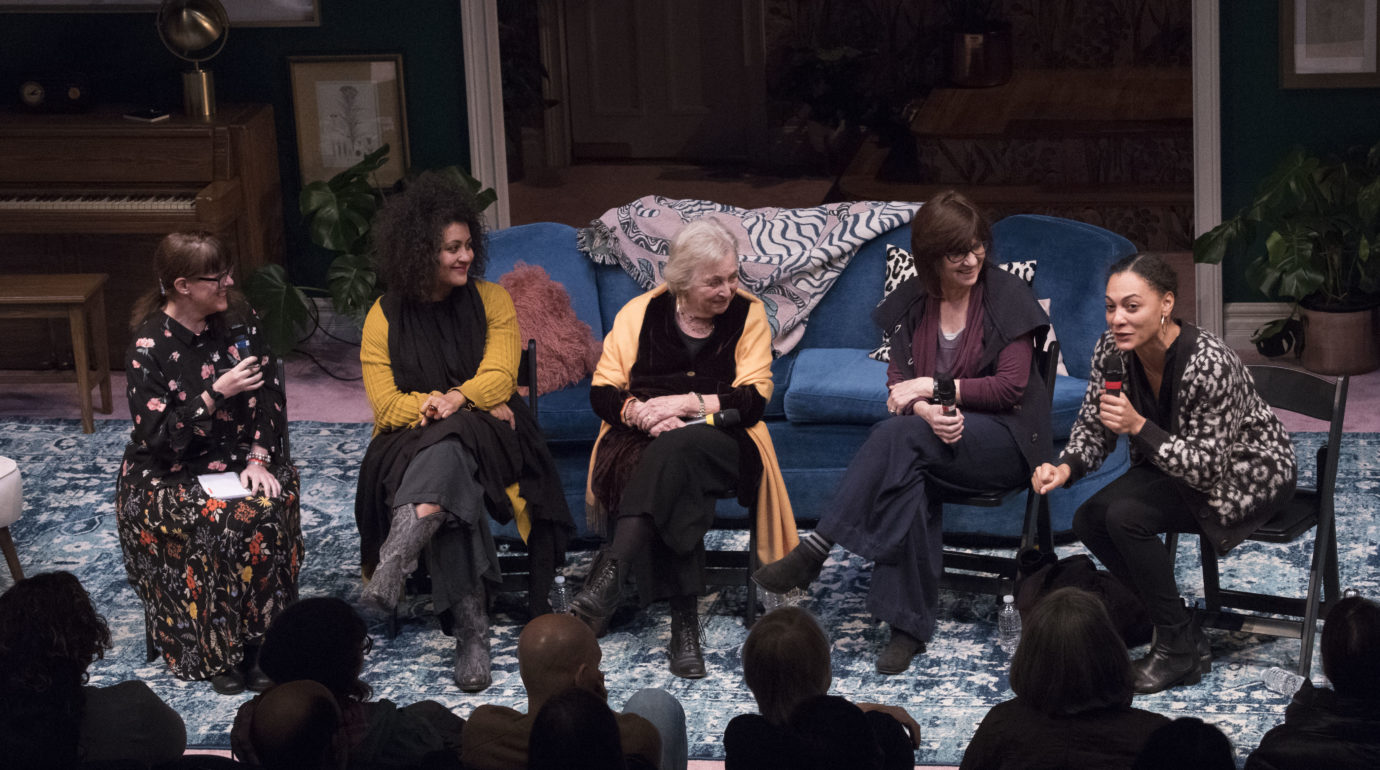Actor Rebecca Schull played the title role of Fefu in María Irene Fornés’s seminal play Fefu and Her Friends twice: once in the original production directed by Fornes in a New York City apartment loft in 1977, and the second time in 1978 at the American Place Theater in Hell’s Kitchen. But she had never before seen the play in its entirety until a recent Sunday, where the play has been revived in NYC for the first time in 41 years, at Theatre for a New Audience in Brooklyn. “It was really a revelatory experience for me,” she told the audience during a recent post-show talkback on the set of the show.
The play, currently running until Dec. 12, takes place in 1935 in the home of the eccentric Fefu, who has gathered seven of her female friends for a weekend together. After introducing each of the women, the show splits the audience into four groups who move through separate rooms of Fefu’s sumptuously decorated home and get to know each woman (and her deepest thoughts) intimately. In the decades since its premiere, Fefu hasn’t been produced frequently but has inspired countless artists who’ve read it (Fairview Pulitzer winner Jackie Sibblies Drury even has a cat named Fefu).
On Sunday, Nov. 24, after a performance of the play, Theatre for a New Audience staged a sort of Fefu summit, gathering artists from both the original production and the revival to compare notes on the play: not only Schull but Gordana Rashovich, who played the show-stopping Emma in Fefu in 1977 and 1978, and from the new production, director Lileana Blain-Cruz and Amelia Workman, who plays Fefu. In a conversation moderated by playwright (and former Fornés student) Caridad Svich, the women traded stories about their respective productions.
The conversation has been edited and condensed.
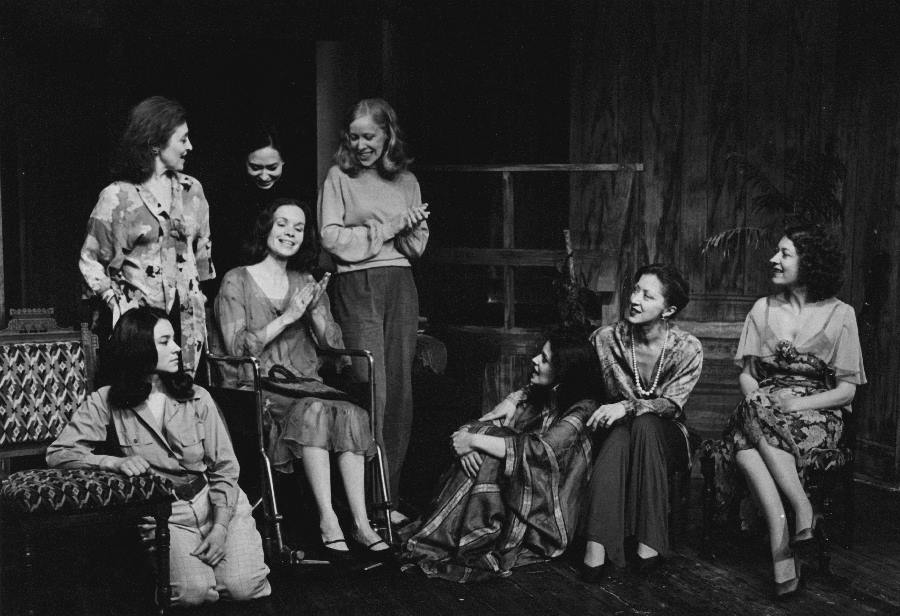
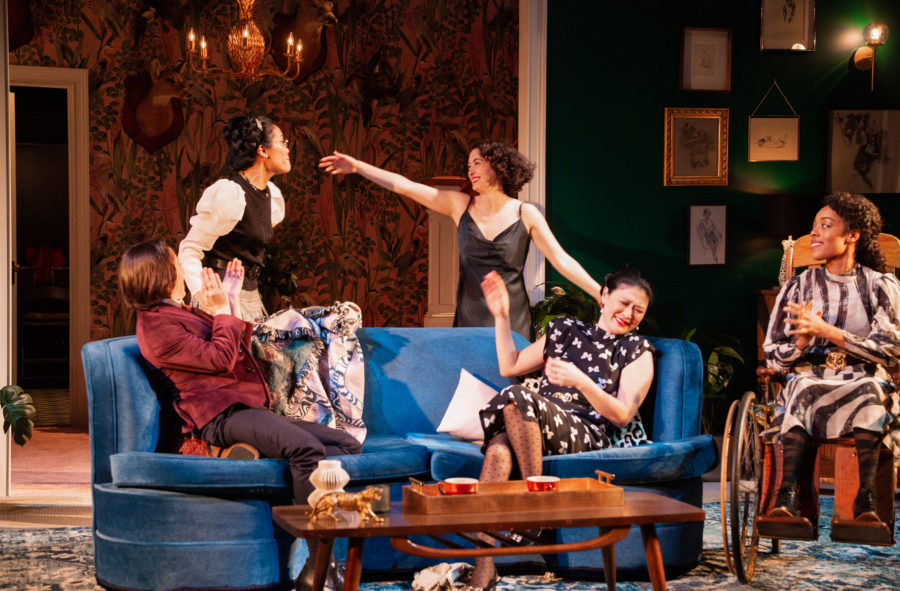
CARIDAD SVICH: First of all, performing Fornés’s work—her rhythms are so distinct, her tone is kind of slippery to perform and to direct. I wanted to start there in terms of actually having been directed by her in this play and what that experience was like.
REBECCA SCHULL: I think it’s fair to say that she was unlike any director we ever worked with, because it was her own work and she had very specific ideas of how things should be. Also, as I recall, the way she directed you was very idiosyncratic. She would give you a metaphor to say: This is what the attitude is in this scene. I don’t really recall getting a lot of direction from her. Of course, Irene was also a visual artist as well as a playwright and a director, so everything she did had a very strong visual component.
One thing I remember was at the end, when [Fefu] tiptoes in to see Julia in the chair, I think she said to me something like, “This is when you’re creeping along a wall and you running your finger along a wall and you don’t want to be heard or seen.” That was the kind of thing she would say, and so you got a sense of what she was trying to convey. But this [new] production is so different from what we did, because originally we did it in a loft in SoHo, which is why she came up with this amazing idea of separating everyone into four groups, because it was a flat. It was a loft people lived in, so there wasn’t a huge area and the audiences were limited to 100 people total, so each group had 25 people, so it was all on a very small scale. That’s the original production.
GORDANA RASHOVICH: She decided on rooms because she liked the little spaces in the loft. She’d like a corner and say, “Oh, I could see a kitchen there!” And she was hands-on all the way. I mean, costumes, hair, breathing, when to bite into the apple. Hands-on all the way. [laughs] My favorite direction from her was, “Don’t I make you look beautiful? All you have to do is listen to me.” I take that with me wherever I go.
I want to move to Lileana. Taking on a work that hasn’t been seen in New York in 40-plus years, that has a reverence and massive love around it historically in terms of the field, I’m curious about how you walked into it and met it, because I think this is a play you have to meet. The encounter with it is so specific.
LILEANA BLAIN-CRUZ: Yeah, I was nervous. When we think about this play, particularly in the theatre community, it lives on a certain kind of pedestal. To have the chance to actually make it happen, I did feel a lot of nervousness. But the thing I keep thinking about is Fornés as an artist and somebody who has inspired so many people and left that imprint, I was just like, [raises hand], “Hey girl, I’m listening. I’ll take the notes.” I read the interviews, we spent a lot of time just trying to basically get to know her from a distance in some way. I think what you just described is totally right in terms of meeting the play. It’s not the kind of play where I’m gonna be like, “Okay great, I’m gonna do this, this, and this.” It doesn’t allow for that kind of control. The slipperiness of it requires you to open, in some ways, to release control in order to kind of discover.
So I feel like there’s that combination of reverence and also playfulness. There was something that really moved me in thinking about what it means to make this play now, about being in times that are full of fear, times that are full of stress and repression. What does it mean to come to a house party where this group of women find refuge in each other? That space of refuge, that space of play, that space of being seen felt important to me and in this moment right now.
I want to hear from Amelia. What was it like to encounter Fefu for the first time as an actor. Was this your first opportunity to look at this material?
AMELIA WORKMAN: This was my first opportunity. I sort of fell for it immediately. I was like, there’s so much happening and I don’t quite understand what it is yet and I need to know. You have to rediscover it every time. Typically in a play, you can be like, “I do this, I go there, I need to know where I’m going and what I’m trying to hit.” In this, you have to know where you’re coming from but you can’t at all be thinking about where you’re going or else you get all out of kilter—you get ahead of it, you flub your lines.
It’s because Irene is so good that it’s constantly forcing you to check in with what you’re doing. There’s no coasting. There’s no rote moving through it. You constantly have to think the thoughts in order to say the words or else you will mess it up. But there’s a beauty in that, because you just have to think the thoughts. You just have to have an intimacy with your own imagination, which is something she said that I really took to heart and I think it’s been helpful. And surrender your full self to it.
I know Irene was always like, “Well, it’s a play about women, yes, but please don’t call it feminist. Well, maybe it is feminist. Well, I don’t know.” But I think this is an interesting play because it’s both about women being, but also about women being watched by an outside force. It’s a little bit like we’re eavesdropping and looking at them all under glass, so it’s like a place where women feel free but also not free. So thinking about those spaces for you personally as artists even outside of this play, how does it make you feel about the notion of freedom and artistry?
RASHOVICH: We didn’t talk about it being 1935 ever, to my knowledge. What we had to share with one another before we began the play was something very personal about ourselves. Because she’s interested in interior landscapes and how they affect other people that you feel safe with. You might not always agree with them and you may argue with them. Of course, I fell in love with Fefu—this Fefu, you know [gesturing to Schull]. But that’s what she was interested in, creating this interior landscape in a situation where people were free to let it out. Their feelings. Their doubts. Their happiness. All that sort of thing, whatever was bothering them on the inside. Even Julia was free to expose that, and she’s practically catatonic.
WORKMAN: I love what you said, because I feel like we talked a lot in this play about how women are always holding space for each other to feel whatever they’re feeling. People so rarely do that now in plays or in life. Even just allowing for disagreement without causing anything. I remember one of the first days, we were talking about how this is one of those really, really good friendships where we can talk about things down to the studs, and l can be like, “Really? You really see the world that way?” and we’re fine. Because you can get into to the intellectual pursuit and debate of it, and you know underneath that there’s a respect, a love, and an acceptance of who you are as you are and where you’re at.
The other thing I’m going to say is this play has become more delicious to me. Because the play has felt more and more like a revisionist history the more we have all these beautiful, glorious audience members and young people and women and queer people come and say, “This is amazing to feel like I’m seeing myself in that time period.” It’s quite incredible, because these women did exist, we just didn’t read about them, we didn’t see them on television, we never saw them on stages. But women like this did exist and do exist, and I think representation matters, and seeing people that look like you in different kinds of life, aspects of life, experiencing different things with different kinds of people is important in the path forward in terms of understanding each other.
BLAIN-CRUZ: Knowing that [Fornés] was a visual artist was so deeply satisfying to me. Because I think theatre is an art form that embraces all of the art forms inside of it. Yes, let us appreciate beauty! This is a group of women who have a love of beauty. Of course they’re gonna go to Fefu’s house, because she has the most beautiful house and it’s wonderful to live and sit inside of it. So let’s build a space that feels like that, where you want to go to, where you want to inside. So that was a wonderful process with [set designer] Adam Rigg. We went through many, many iterations of this ground plan, because we didn’t have a SoHo loft to house the play inside of. So how were we going to move 240 people in a space and make it feel both intimate and grand in some ways, how to feel Fefu’s vibrancy inside of that, in a limited space that everyone can kind of participate in—that was one of the journeys.
Montana Levi Blanco, who did the costumes, I love so much because he’s one of the few costume designers who thinks about the people inside of them and what will make them feel good, what’s gonna make them feel strong, what radiates their power. One of the things I love that he did with Fefu’s costumes, first of all, he gave her the most amazing, well-fitted pantsuit. Yeah, pantsuits!
WORKMAN: Bob Mackie! [Ed note: Fefu’s suit is a four-piece vintage Mackie suit].
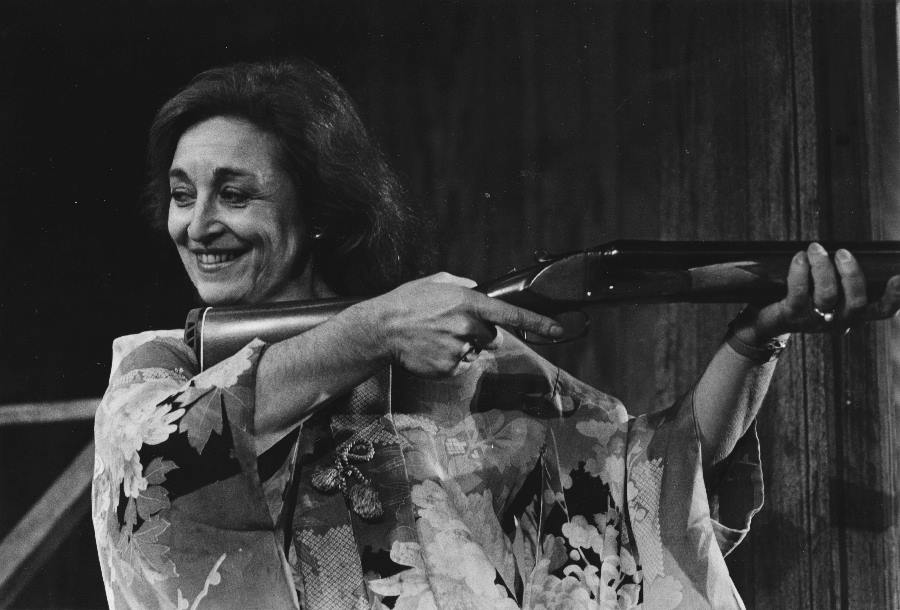
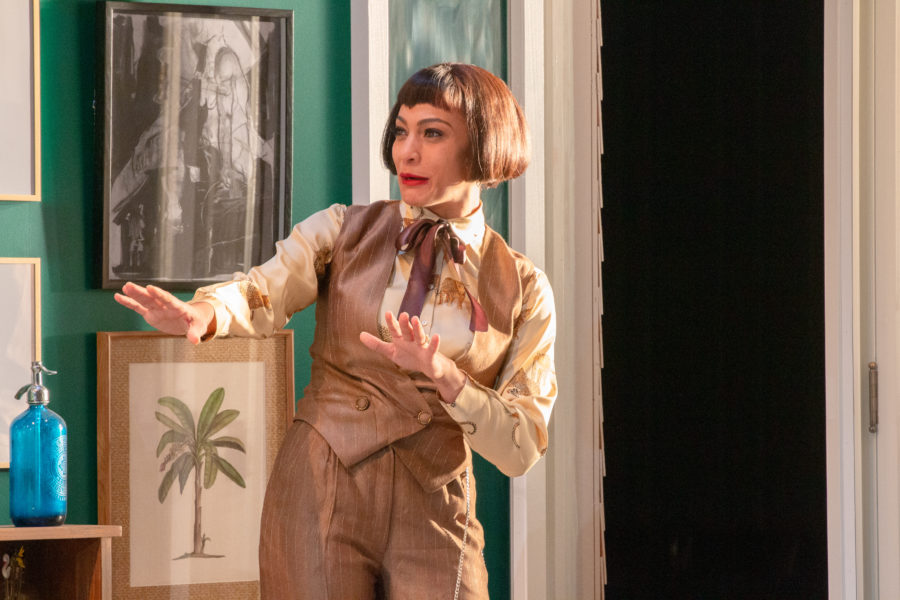
I wanted to speak to the sense of intimacy, of acting in close-up, because the audience is with you in these scenes. What was it like originally? Also the loop of those scenes on a technical level for the performer. I’m curious about how you embody that and how you protect yourself but keep yourself open as you’re going through the experience.
RASHOVICH: One of the things I remember [Fornés] saying is: This is not theatre acting. One of the reasons there are small rooms and four walls is because of the intimacy. She didn’t want anyone to project, she wanted people to be talking like they’re in a film. She wanted it very intimate.
SCHULL: You could do that in the original setting, because it was intimate. It was small. There were only 25 when you broke up. I really don’t remember it being a problem figuring out how to do it. Gordana and I did the scene, the croquet scene.
RASHOVICH: We never…
SCHULL: You played croquet, I think. I seem to remember I was lying on a bench for most of the time.
RASHOVICH: I must have played croquet.
SCHULL: You did a little bit. You just sort of did whatever felt comfortable, and if [Fornés] was fine with it, it stayed. If she didn’t think it was fine, she would suggest something. I suspect she didn’t come in with a lot of preconceived notions of what this should be, and this should be, and this should be, because she was always open to the moment and some improvisation. That was really her greatness in everything she did.

